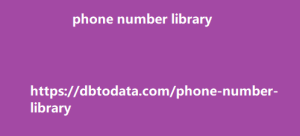The more relevant they are, the more Google is pushed to acknowledge your website’s content is reliable and worthwhile. So, it is essential to concentrate on building links from sources that are, in some way, relevant to the pages you want to boost. by the website’s industry, of course. But aside from that, you should look at their domain authority. Link-building efforts reap the most rewards when they come from a website that has a high domain authority. The Mozbar on Moz We use tools like Mozbar from Moz and Backlink profile from Ahrefs to quickly get the domain and page authority of websites. These also show us other backlink data we need to consider in our link-building strategy.
backlink profile analysis on Ahrefs I highly
recommend focusing your efforts on websites that have a domain authority of at least 25. Anything less than that won’t give enough link juice, in my experience. The more authoritative the other website is, the more links built will raise the authority of your website. Anchor Text Anchor text is the text that’s clickable and highlighted when you create a hyperlink. The anchor text you use for your links gives context regarding the linked page to both users and search engines. An example of anchor text for hyperlinks Striking a balance between optimization and naturalness is crucial, too, when it comes to anchor text. You can learn how to do that in my guide on how to effectively use anchor text for SEO.
But to summarize my points from that guide:
the anchor text you use needs to give a crystal-clear explanation of what people will find when they click on your link. Descriptive and keyword-rich anchor text would show search engines that the information is very, very important to the given topic. But of course, the anchor text you use and the page you’re linking to have to be related. For example, if I wanted to make a guest post on a gardening website, and link back to my page on organic gardening, I can use anchor text like “best organic gardening tips,” or “organic gardening supplies,” depending on what my guest post is about, and what content my page has.
However, try to avoid over-optimized anchor
text. I don’t recommend keyword stuffing, or being repetitive in your anchor text. Otherwise, it raises red flags with Google—and puts you at risk for penalization. Instead, put your focus on making anchor text that offers a seamless and user-friendly experience. Link Quantity & Quality When it comes to link building, it’s quality over quantity. Just one backlink from a trustworthy, high domain authority site within your industry will give your website more link juice than 10 spammy backlinks from random websites. Take this backlink one of our recent articles got from SERoundtable, for example. This provides a ton of link juice. A backlink to SEO Hacker from SERoundtable, which gives high-quality link juice Start by locating reputable websites in your niche with high domain authority and a proven track record.
The next step is outreach. Approach them
with collaborative efforts like guest bolivia phone number library blogging, expert interviews, or featured pieces to build connections from these sites. That said, the quantity of backlinks does have some significance in the eyes of Google. I just don’t recommend focusing on quantity alone, as it does not always benefit your page rankings. But when it comes down to it, you have to consider: would it be more cost-efficient to focus your outreach towards 10 websites with good domain authority, which are more likely to respond positively—or spend weeks trying to contact a high domain authority website just for a slight chance at one or two backlinks? You need to be smart with how you approach this.
Focus on a balance between quantity and quality
to get the best possible ROI. If possible, I recommend hitting a varied backlink profile. In my experience, it’s the most natural-looking to Google and still boosts your rankings. Lastly, you should always maintain regular monitoring and analysis of the links that are pointing toward your website. This is essential in helping you spot any spammy or low-quality links, which you can quickly disavow before they harm your rankings. Why is High-Quality Link Juice Essential? On-page and technical SEO is foundational to your page’s performance—but off-page SEO (a.k.a, your backlinks) is what sets your page apart from the thousands of other similarly-optimized pages out there.
That’s why getting high-quality backlinks to
gain the most link juice possible how much should you spend on seo services? for your pages is essential. Once you get that, it provides a ton of benefits SEO-wise, such as: Improved Search Engine Rankings No matter what industry you’re in, or niche you’re targeting, there will always be other websites competing for the same keywords. If every page competing for the same keyword had all things equal in terms of site speed and usability, content, and on-page optimizations, what would make Google consider your page to be better than the rest? The answer is your backlinks. It’s the one way you can be competitive in your SEO. The more backlinks that give great link juice to your pages, the more likely they’re going to be ranking high on the SERPs.
Remember that several factors go into your
website’s rank—link juice is just one hit post piece of the puzzle. But it is a very important piece you should not forget. Increased Organic Traffic With improved rankings, increased organic traffic tends to follow. This is expected because a majority of people only really look at the first page of the SERPs—maybe the second page, sometimes. So higher rankings equals higher chances that people see your stuff. But aside from that, good backlinks also serve as another funnel for traffic toward your website. For example, if an article on say, Healthline, links to one of your articles, that many of their readers will click on that link.

